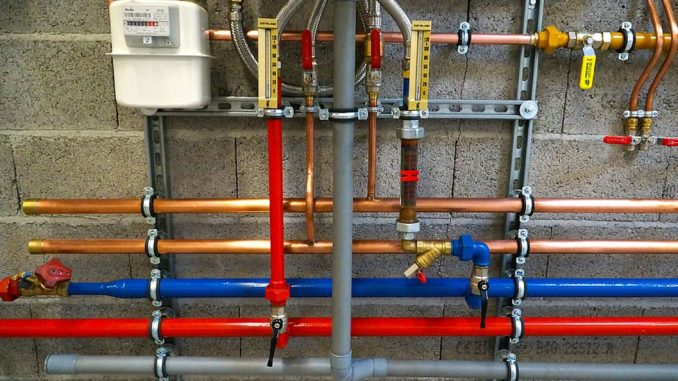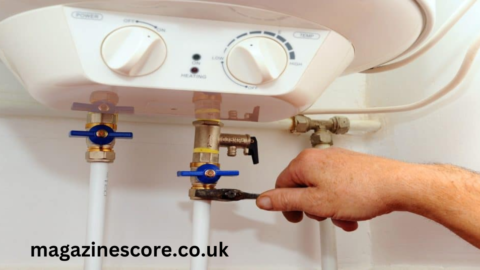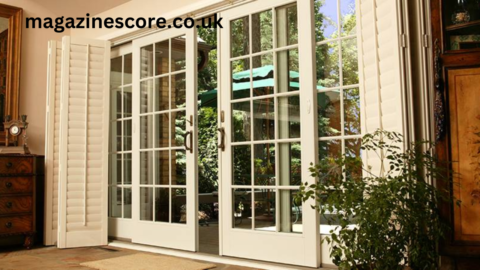Introduction
Ever heard strange banging or knocking sounds echoing through your walls when your heating comes on? That eerie noise could mean your central heating pipes are crying out for help. It might seem harmless, but ignoring it could lead to expensive repairs or even a cold winter night with no heat.
In this article, we’re going to demystify that annoying knocking, uncover its root causes, and explain how a plumber in Burton on Trent can be your heating system’s superhero.
What Is Knocking in Central Heating Pipes?
Understanding the Sounds
Let’s start by understanding what we’re hearing. The knocking sound in your Knocking in central heating pipes is often referred to as “water hammer” — and no, it doesn’t involve any tools. It’s a thudding or banging sound that occurs when water in motion suddenly stops or changes direction.
Why It Happens
Central heating systems rely on water being pumped through pipes to heat your home. When there’s air trapped in the system, high pressure, or other disturbances, water flow gets disrupted, creating those dreadful noises.
Common Causes of Knocking in Heating Pipes
Air Trapped in the System
One of the most common culprits. If there’s air in the pipes, water can’t circulate properly, leading to gurgling or knocking sounds.
High Water Pressure
Think of this like a car speeding down a narrow street. If the water pressure is too high, it rushes through the pipes and crashes into valves or bends, making a racket.
Loose or Expanding Pipes
Pipes that aren’t properly secured can knock against walls or floorboards as they expand and contract with temperature changes.
Limescale Build-Up
If you’re in a hard water area (Burton on Trent, we’re looking at you), limescale build-up can narrow pipes, causing water turbulence and noise.
Potential Consequences of Ignoring the Problem
Damage to Pipes and Boiler
That knocking isn’t just annoying — it’s a warning. Over time, the vibrations can weaken joints, crack pipes, or even damage your boiler.
Increased Energy Bills
Inefficient heating systems caused by airlocks or pressure problems make your boiler work harder, using more energy and driving up your bills.
How to Diagnose the Issue
Listen Closely
Where does the noise come from? Is it near the boiler, in a particular radiator, or along a pipe run? The location can give clues.
Check Pressure Gauges
Your boiler’s pressure gauge should sit between 1 and 2 bars when cold. Anything outside this could mean trouble.
Inspect Radiators and Valves
Are some radiators cold at the top but hot at the bottom? That’s a sign of air needing to be bled out.
DIY Solutions to Reduce or Stop the Noise
Bleeding the Radiators
Grab a radiator key and a cloth. Slowly open the valve and let out the trapped air until water trickles out. Don’t forget to recheck the boiler pressure afterward.
Securing Loose Pipes
Use pipe clips or foam insulation to prevent movement. This simple fix can reduce a lot of the banging.
Adjusting Boiler Pressure
Lowering pressure (if it’s too high) or topping up (if too low) might solve the issue — but always follow the manufacturer’s guidelines.
When to Call a Professional Plumber in Burton on Trent
Signs It’s Time to Get Help
- Persistent knocking even after bleeding radiators
- Visible leaks or damp spots
- Fluctuating boiler pressure
- Boiler frequently switching off
What a Professional Plumber Will Do
They’ll assess the whole system — not just the noisy spot. A good plumber can diagnose deep-seated issues, like a faulty pump or blocked pipes, that DIY solutions can’t fix.
How a Local Plumber in Burton on Trent Can Fix the Problem
Inspection and Assessment
Local plumbers understand common issues in Burton on Trent homes — whether it’s old pipework or hard water conditions. Plumber in Burton on Trent
Using Specialized Tools
From thermal imaging to pressure testing, professional tools make finding the root cause much easier (and quicker).
Permanent Repairs and Maintenance Tips
Instead of just patching up the problem, they’ll provide long-term solutions — like installing air separators, pressure reducers, or power flushing the system.
Preventative Measures to Avoid Knocking Pipes
Regular Servicing
Don’t wait for the noise. Get your boiler and heating system checked annually to catch problems early.
Pipe Insulation
Insulating pipes helps control expansion noise and prevents freezing in colder months.
Water Softening Solutions
If hard water is an issue, installing a softener can reduce limescale and help your system run more quietly and efficiently.
Why Choose a Local Plumber in Burton on Trent?
Fast Response Time
When your heating is on the fritz, you need help fast. A local plumber can usually get to you quicker than a national chain.
Familiarity with Local Plumbing Systems
They know the common quirks of properties in Burton on Trent — especially older homes with dated heating setups.
Trusted and Reviewed Services
Local plumbers often rely on word of mouth and good reviews. That means you’re more likely to get honest, quality work.
Cost of Fixing Knocking Pipes in Burton on Trent
Average Pricing
Basic jobs like bleeding radiators or tightening pipes might cost £50–£100. More complex fixes like power flushing or pressure balancing could be £200–£500.
Long-Term Savings from Professional Help
Hiring a plumber might seem pricey at first, but preventing further damage can save you hundreds — even thousands — in the long run.
Conclusion
The knocking in your central heating pipes isn’t just noise — it’s your home telling you something’s off. Whether it’s trapped air, high pressure, or something more serious, don’t ignore the signs. Start with simple checks, but don’t hesitate to call in a trusted plumber in Burton on Trent if needed.
Remember, the sooner you act, the better — both for your wallet and your warmth!








